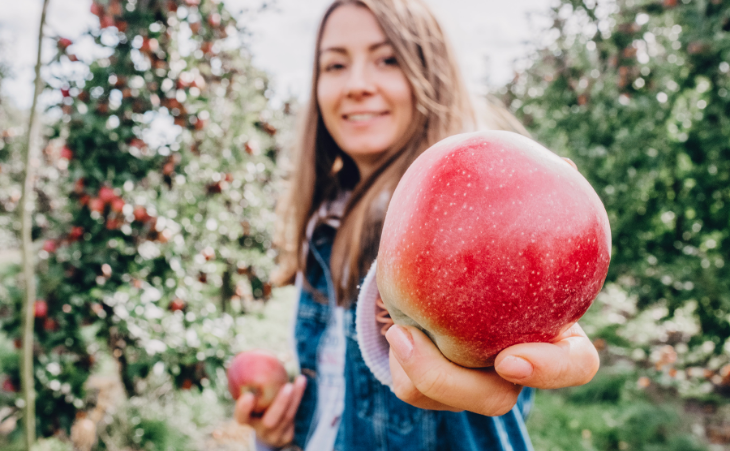Getting to Know Your Food Source

Following the year 2020, our country continues to face extraordinary challenges. Many of us are turning to backyard food production to both save money and feel secure about our food supply. Stark Bro’s has always taken our mission to educate and support the home grower seriously, and we’re still here for you today.
One of the great things about growing your own food is knowing where your food comes from, what chemicals (if any) are used, and who all has handled your food. In addition, growing your own food promotes a healthy lifestyle while also being good for our planet.
The Movement of Self-Reliance
In recent times, people have become increasingly concerned about potential disruptions to our food supply chain. Now we are seeing a revival of Victory Gardens – which were popular during World War I and World War II when Americans were once urged to plant vegetables, fruit, and herbs in every patch of available soil in fear of food shortages. Gardens flourished on the home front because people were eager to build their own community-based food security and to cultivate something beautiful and useful in times of great stress and uncertainty.
The idea remains today, considering the recent pandemic - that shelves could quickly go bare with labor shortages or any disruption in our food supply chain. This has encouraged people in today’s world to become more self-reliant by growing and preserving their own food again.
By growing more food of your own, you can take more control over your family's food supply. Being self-reliant is about taking care of yourself so you can help others.

Knowing What We Put Into Our Bodies
When you have a bounty of fresh ingredients on hand, you are less likely to turn to packaged or processed foods. This makes it much easier to make healthy choices for you and your family.
Not only will your vegetable and fruit intake increase, growing your own food allows you to be in control of what chemicals are applied to your produce. This allows you to avoid pesticides, herbicides, protective wax coverings, and GMOs. In turn, you can choose to practice safer, organic alternatives.
Think also of all the people who have touched the produce for sale in the supermarket. Harvesting your own, you don’t have to worry about other people's germs!
In addition, you have the advantage of determining when you harvest your foods. With methods such as succession planting and choosing varieties that ripen at different intervals, you can reap the benefits of nutrient-packed, fresh produce all season long.

It’s Good for the Earth
We all want to do our part to live a sustainable lifestyle and help the environment. People today are more aware of their carbon footprint and are choosing to eat more local foods to reduce the impact of shipping food thousands of miles.
In addition to purchasing food locally, harvesting food from your own yard when possible, will help reduce the impact we have on the environment. Backyard gardens tend to use fewer pesticides, which can contaminate groundwater, affecting our drinking water, as well as fish, insects, and other animals.
When using kitchen waste as compost, you keep waste out of landfills and it helps promote healthier soil, leading to more abundant crops.
Fruit Trees and Sustainability
Fruit trees are not just a source of delicious, fresh food; they also actively improve the environment. According to Cornell University, a single apple tree can produce nearly 260 pounds of oxygen annually. A mature apple tree alone can provide enough oxygen for a family of four!
In addition, fruit trees absorb carbon dioxide (CO2) during photosynthesis, helping to offset greenhouse gas emissions. A single tree can absorb about 48 pounds of CO2 each year. If you plant multiple trees, the combined environmental impact becomes significant, helping combat climate change while providing food for your family.
By planting native species or climate-adapted fruit trees, you can maximize their environmental benefits while using fewer resources like water or fertilizer. Strategically placed trees can even provide shade to reduce your home's energy consumption during the summer months, further lowering your carbon footprint.
Growing your own food allows you to build a sense of pride knowing that you are making healthy, prepared choices for your family. It is cost-effective, good for the environment, and good for your overall health!
We’re so thankful for the opportunity to continue the tradition of empowering Americans to successfully harvest their own food. Finding a community support system will only make growing more rewarding! Join us on Facebook or Instagram for tips, support, and a community of like-minded gardeners.


